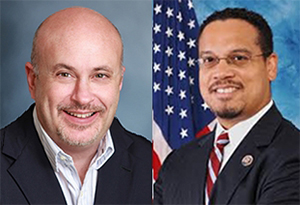How the Government Targeted Occupy
 Originally published by In These Times.
Originally published by In These Times.
Freedom of conscience is one of the most fundamental human freedoms. This freedom is not merely about one's ability to choose to believe or not believe in religion or a particular philosophy. In a democracy, freedom of conscience is about the ability to be critical of government and corporations, and to be free from the chilling fear that being critical will subject you to government surveillance.

 "The right of voting for representatives is the primary right by which other rights are protected," wrote Thomas Paine in 1795.
"The right of voting for representatives is the primary right by which other rights are protected," wrote Thomas Paine in 1795.